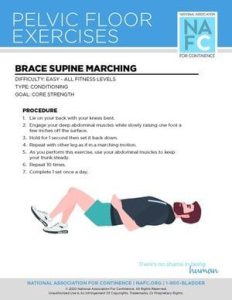Which nutrients our body needs every day and why

What nutrients does the body need every day?
Our society has become fast-paced and is increasingly becoming a snack culture. Time and desire to cook is hardly available, let alone to go shopping with all senses. It is so important to give the body exactly what it really needs.
Health is based on three fundamental pillars: nutrition, exercise and stress management. The three levels are directly interdependent. If the nutrition is bad, then one feels this mostly at physical signals such as a bad digestion, headache or stress conditions.
This in turn gets in the way of good stress management and you feel unbalanced and not comfortable in your body. Sufficient exercise and sport promotes the cardiovascular system, the muscles are used and built up, stress can be reduced and after an extensive jogging round one usually feels immediately balanced and satisfied.
If all three areas are in a healthy balance with each other and are equally satisfied, then there is little in the way of a healthy and happy life.
In this article we will discuss the vitamins and nutrients that the human body needs on a daily basis.
Essential and non-essential nutrients
For all processes in the body to run smoothly, it must always be supplied with macro- and micronutrients. These include fats, proteins, carbohydrates, minerals, vitamins and water. These six nutrients are essential and cannot be produced by the body itself. Humans must absorb them through food.
Non-essential nutrients include certain amino acids and fatty acids. The body can produce them itself.
Vitamins
A chemical distinction is made between water-soluble and fat-soluble vitamins. The fat-soluble vitamins include vitamins A, D, E, and K. Vitamins C, B1, B2, B5, B6, B12, biotin, niacin and folate fall into the group of water-soluble vitamins.
Vitamins do not provide energy like carbohydrates, proteins and fats do. Are act in the human body as biocatalysts, which start or accelerate chemical reactions and are responsible for the control and regulation of all metabolic processes.
Vitamins strengthen the immune system, strengthen bones, support wound healing, improve vision and help to obtain energy from food. If a sufficient vitamin supply is not ensured, the body is more susceptible to infections, among other things, which can endanger your health and your life.
If you eat a balanced and predominantly plant-based diet, a vitamin deficiency is quite unlikely. Should it still be professionally diagnosed, taking supplements is advisable.
Vitamin supplements
As we know today, the fruits and vegetables we buy in the supermarket are usually not as healthy and nutrient-rich as they could be naturally. So it seems to make sense to think about taking nutritional supplements.
While vitamin preparations were once only available in pharmacies, they can now be found in every drugstore and supermarket. It only makes sense to take vitamins if the doctor can prove a deficiency.
Vitamin deficiency can be due to various causes. Often it is a disturbed vitamin metabolism or a disease of the gastric mucosa. In the case of certain deficiency symptoms, targeted intake can lead to normalization of the vitamin balance.
Many people believe that vitamin supplements can be used to compensate for an unhealthy lifestyle – but this is not the case. No one can avoid a healthy and balanced diet.
The right diet provides the body with all the necessary vitamins and makes taking supplements obsolete. Not to forget the fact that vitamins in high doses can cause undesirable side effects.
Vitamin C has a relatively low toxicity. However, if the vitamin is taken in high doses, gastrointestinal disorders such as diarrhea, cramps, nausea, and vomiting may occur.
Many preparations also contain synthetic vitamins. In principle, everyone is advised against taking such preparations.
Synthetic and natural nutrients don’t differ much chemically. However, despite a similar structure, the body may react differently to synthetic nutrients. In some cases they can even be very harmful to the human organism.
Secondary plant substances
In addition to the essential and non-essential nutrients, there is a third group: the function-promoting nutrients. This group of nutrients includes dietary fibers as well as secondary plant substances.
The group of secondary plant compounds is still quite unexplored. They are known to exist and to have positive effects on the human body. Among other things, they are said to have an antioxidant and immune-boosting effect.
Secondary plant substances are only formed in the last 20 percent of the ripening phase in the plant or fruit. Due to the long production chains, however, it is quite difficult to get hold of fully ripe fruit and vegetables in our day and age, as they are usually harvested early in order to survive the long transport routes.
Therefore, if possible, choose regional and seasonal fruits and vegetables.
Personal experience reports underline the importance of a balanced diet, in which the plant world must not be neglected.






